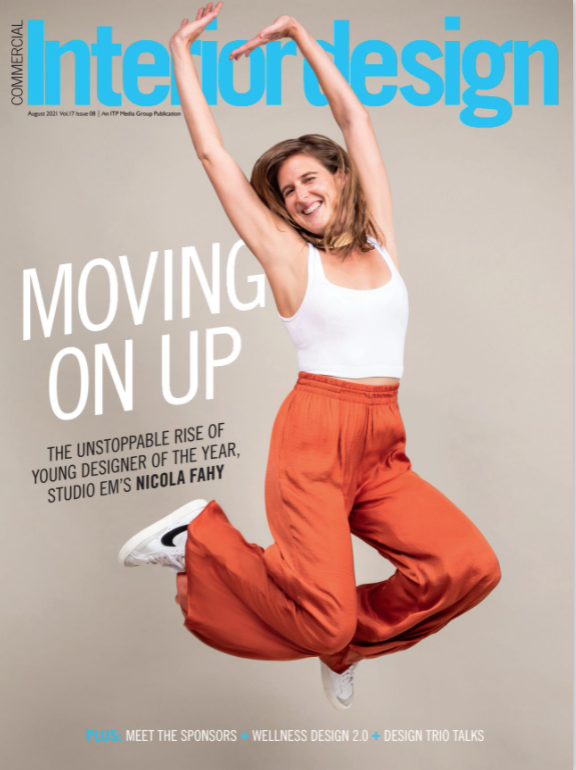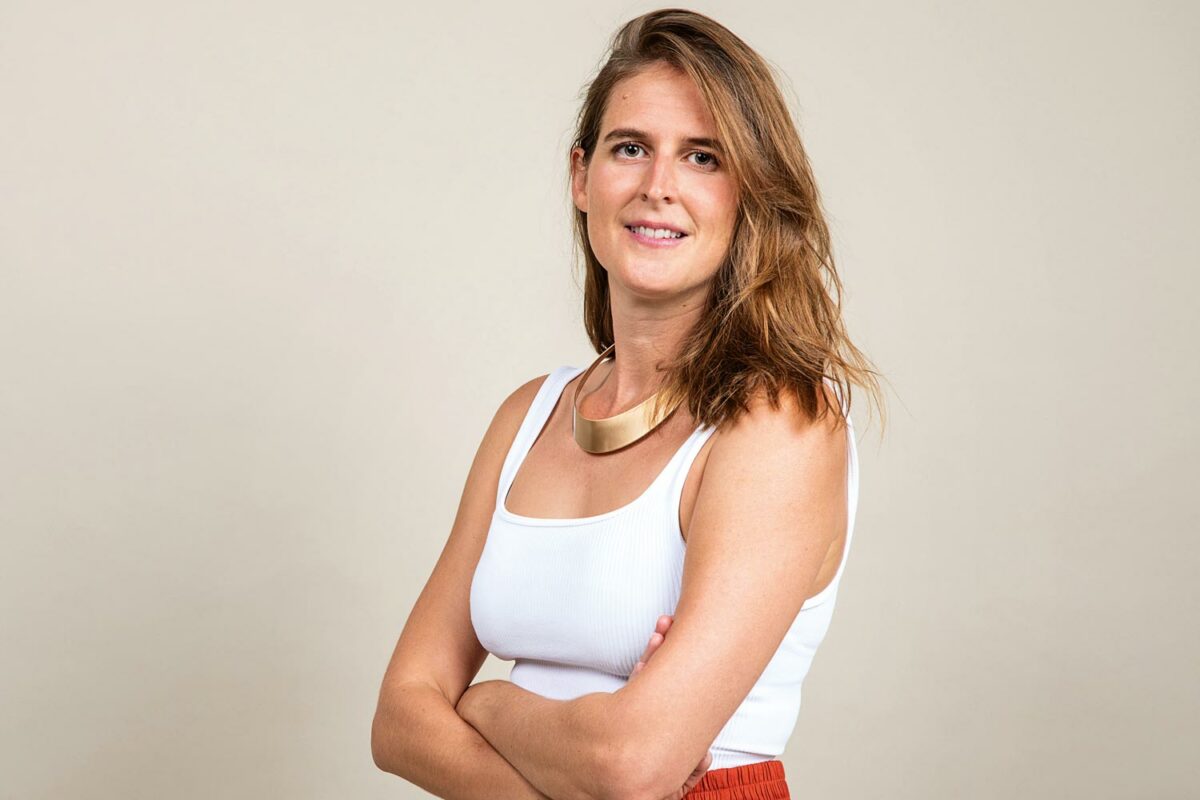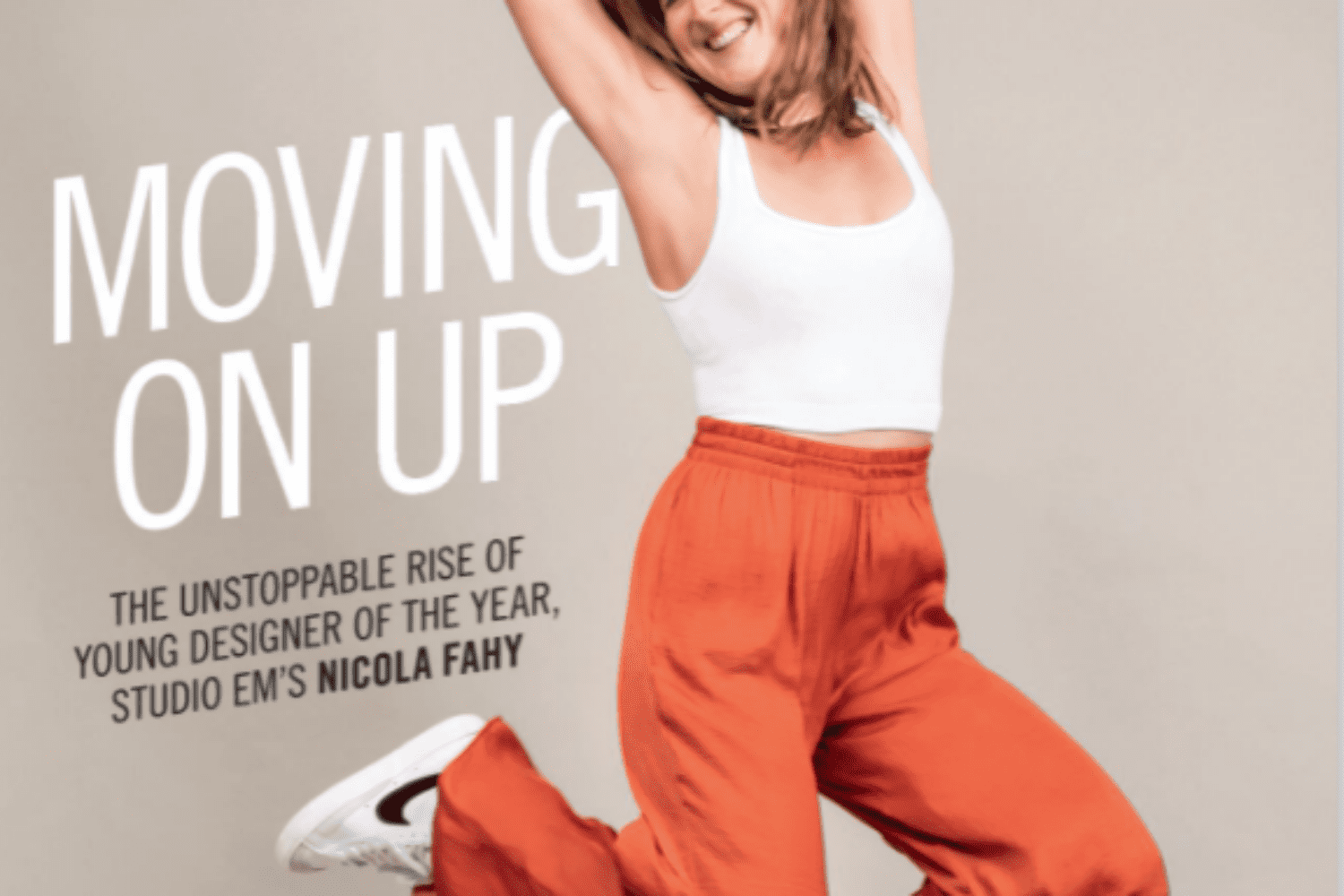Nicola reflects on winning young interior designer of the year.

This month we’re absolutely delighted that our Young Interior Designer of the Year, Nicola Fahy, was featured as this months cover star on Commercial Interior Design Magazine.
Nicola Fahy of FINCH talks F&B, family and coming first in the Young designer of the year category at the 2020 CID Awards
There’s a hullabaloo for every winner we announce at the Commercial Interior Design Awards. But there are a couple of categories that illicit genuine raw emotion. At the event in November last year, when Nicola Fahy’s name was read out by our MC Tom Urquhart in the Young Designer of the Year category, there was an obvious outpouring of emotion.
Nicola Fahy doesn’t really remember going up to the stage to collect her award for Young Designer of the Year 2020, she confesses to us eight months later as we catch up to find out what her career has been like since. All the carefully choreographed COVID protocol went out the window for a moment as she gathered herself and made her way to the stage. The gentle guidance of Urquhart made sure she sanitised and got up the steps to collect the coveted trophy.
“I didn’t think I would win,” she admits, a strong northern English accent softening every sentence.
Fahy is the head of F&B for Dubai–based Studio EM and, at the time of winning the award, was 30 years old – the cut-off point for the title of young designer.
But win she did after a panel of nine international and local judges decided she was the standout choice from an extremely tough category.

Young Designers Career Path
Nicola Fahy joined FINCH after a stint of university in the UK, but the role brought a return home in every sense, as she grew up in Dubai and her sister Emma runs the design practice. The sibling status tying them together is a fact that still surprises people, including CID.
Emma invited Nicola to join the studio after she graduated from university in Nottingham. She’d also been offered a place with another firm and it was a tough choice, as she rated them highly. In the end, it “had to be family” she says.
She looks back fondly at a childhood spent in Dubai, where her parents moved to in 1981. “My dad got a transfer; he didn’t even know where Dubai was,” she says. “He was a medical engineer, fixing laboratory machines in hospitals.
“My mom went to the library at home to try and find some info about where she was moving to. The library said they have absolutely no idea what she was talking about. So they got a map out to find out where it was at. They found it and my mom said ‘right, well, we’ll just go for two years, and then we can always come back.
“So, there’s me, my brother and my sister. My sister and I were born out here.”
What was Dubai like, we wonder, in those heady days of frontierism? Nicola explains: “Incredible. We absolutely loved it. It was just so quiet. You could just drive on the beach and have a campfire. Obviously, you can’t really do that anymore. So when people go, ‘oh, the good old days’, that’s what they mean. It’s changed so much. But there are days when I just wish we could drive on the beach.”
Much of the Dubai Nicola Fahy remembers is gone and she furrows her brows as she thinks about the city that has grown out of the sands and into the sky.
She says: “I think that is one of my gripes is instead of looking at what buildings are here and trying to preserve the history of them, parts of the city are often knocked down to build new developments. That’s great for the construction world. But a memory inside of you is gone. My dad’s office block been knocked down. My old house has been knocked down.
“My whole thesis in uni was about sustainability and about Dubai. So I’ve studied it a lot. If you look at the early architecture, they had it so right and made learned from traditional building techniques and how to keep it cool, without having these high AC bills. But the city was influenced by the Western world and all of a sudden it’s in competition with New York and these major cities. To do that you have to build more and build higher. I just hope people remember where the city came from.”
Nicola Fahy, however, is firmly grounded in her roots, with her childhood in the emirate influencing her eventual career choice.
She explains: “My mum would take us for walks on the Dubai Creek and Bastikya. [now Al Fahidi Historical Neighbourhood, the former fishing village on the Creekside]
“I think it’s just always interested me. We used to draw the wind towers and take boat trips and we learnt all about it at school. So I think that’s really interesting and I love how unique it is.”

Role Models
There’s no hesitation when we ask Nicola Fahy to name her role model. As you’d expect, as heroes are very close to home.
Nicola says: “It’s my sister [FINCH founder Emma Stinson]. She’s pretty cool. She’s done so well. I’m so proud of her and Kristian [Emma’s husband]. We went through a quiet patch, as a think a lot of people did, but they’ve come through COVID and now we’re winning all these awesome projects. And we’ve come around to another CID awards.”


